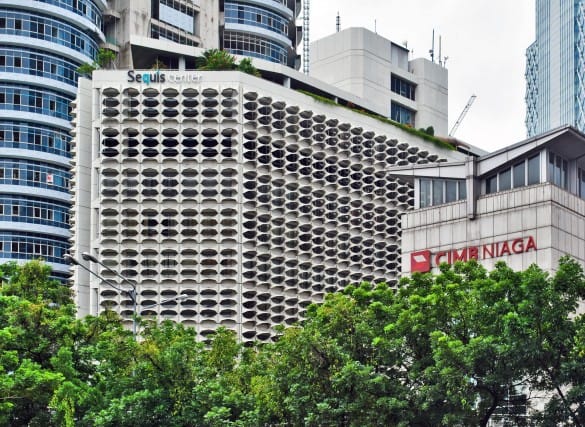The government has removed double taxation on Real Estate Investment Trust securities in a bid to attract more investors to the local property game.
The Indonesian government launched an interesting economic policy package in October 2015. But not many realized the significance. The package removed double taxation for any investor putting money into a Real Estate Investment Trust (REIT) via the collective investment contract (CIC) system.
For those who are less savvy with property lingo, REIT is a term used to describe a company that owns, and in most cases, operates income-producing real estate. REITs can be publicly traded on major stock exchanges. Investors receive special tax considerations and typically high dividend yields. Similar to the way limited partners are treated at a venture capital firm, the CIC system lets investors pool funds into a ‘collective investment vehicle’ (CIV) rather than investing directly into real estate projects individually.
Previously, the government taxed investors twice for investing in property this way. Before the package was issued, the method was painful in Indonesia because backers were forced to hand over tax money on their dividends, but also on their activities, as the CIV was considered a corporate body in and of itself.
This is no longer the case, however, as the government has decided to simply apply a single taxation to investors who go through collective investment vehicles. Following the announcement, Finance Minister Bambang Brodjonegoro said the government considered the collective investment contract and the collective investment vehicle to now be one single entity. At present, a singular tax rule should allow the REIT market to better flourish in Jakarta, and hopefully attract new investors.

“There will be no taxes collected on the dividends paid by the special purpose company to CIC investors,” said Brodjonegoro during a press conference. “If an underlying asset sale occurs through the special purpose company, no tax will be charged either.”
Executive Director of Jakarta-based real estate consultant firm Indonesia Property Watch, Ali Tranghanda appreciates the package, as REIT trading is already common in countries like Singapore, Japan, and Malaysia.
“REIT is an important instrument to collect cheap money from the stock market in many countries. Indonesia has ‘Ciptadana’ as one of its REITs, but the security was burdened with double taxation until recently,” Tranghanda tells Indonesia Expat.
In Indonesia, REIT securities have so far only reached Rp.500 billion (US$37.65 million) in value. This is far less than in Malaysia, where they have reached US$7.53 billion. Singapore recently clocked REIT securities at around US$45 billion. Indonesia, according to Tranghanda, will soon catch up with – or even overtake – Malaysia in terms of its property market size, likely due to more activity in the REIT market.
“REIT is a kind of investment in real estate, but it will not necessarily increase the property price. The new policy on REITs could even decrease mortgage interest from 12 percent to 8 or 9 percent. This will surely give more advantages to developers and customers alike,” says Tranghanda.
Big developers are excited too. Following the announcement, real estate giant Lippo Group is planning to enjoy the policy. Currently, Lippo has two real estate investment trusts, together worth around US$2.57 billion on the Singapore Exchange. The conglomerate plans to soon put one on the Indonesia Stock Exchange. CEO James Riady made no secret of saying the firm was taking this step to benefit from local tax incentives, specifically the recent removal of double taxation on REITs.
“If we do not develop REITs, funding for future property projects will be difficult. These developments are very important decisions. We are expecting Lippo can manage the REITs, which may be worth over Rp.100 trillion (US$ 7.53 billion) within three to four years,” Riady recently told The Jakarta Post.
Apart from Lippo, a mysterious conglomerate from Saudi Arabia will invest in Indonesia’s property and industry sectors. In early March, Head of the Investment Coordinating Board Franky Sibarani said the firm was the fifth largest company from Saudi Arabia, and that it was slated to visit sometime in March to study the investment plan.
“Indonesia is one of its primary target countries for investment. The opportunity is very real and they are very committed. If all goes well, this could be a golden opportunity of getting more investors from the Middle East to put their money in Indonesia,” Sibarani said in a statement. While the firm’s name remains off the record, Sibarani claims the owner of the company is one of the richest men in Saudi Arabia, with a total wealth of US$1.4 billion.
Tranghanda is also optimistic about the outlook of Indonesia’s property sector thanks to favourable economic packages and recent infrastructure developments.
“Indonesia Property Watch calculated a growth of 16.6 percent in the local real estate sector in the last quarter of 2015. We predict in the second semester of this year, that growth will continue,” he says. “But the government has to reduce the acquisition cost of land and buildings to 1 percent [of their overall value]. It must also bring the income tax on real estate to 0.5 percent before the end of the first semester to attract more investors. At least five big property companies in Indonesia are ready to jump into REIT trading.”
Meanwhile, President Joko Widodo signed a government regulation in December 2015 that allows foreigners who hold stay permits to buy certain forms of housing on a “right of use” basis. Expats can buy homes on state-owned or freehold land for an 80-year total term. Should the expat owner pass away, the home can be inherited by surviving heirs who also hold stay permits in Indonesia.
However, it’s important to note that without the right to own the land on which a home sits, foreigners should really think twice about buying a house in Indonesia. As per the regulation, you’re not really buying anything, but instead merely renting a home for 80 years. Future generations of your family may run into trouble later on. Also, should the government decide it has other plans for that particular piece of land, a foreigner homeowner would surely wind up in a weak negotiating position.
“It’s usually not because of the foreign ownership rules that foreigners come to Indonesia in the first place,” clarifies Tranghanda. “Even without the law, they keep coming here anyway because they often have business in the country. The law simply gives expats the ‘right to use’ the property, not ‘right to own.’”
The new law is intended to provide more legal certainty for foreigners who own residences. But still, overseas foreigners would be unable to buy property as an investment, as the regulation specifically requires them to live in Indonesia and have local business interests. In effect, this makes REIT trading a far more attractive way for expats to buy into Indonesia’s property game from abroad.




